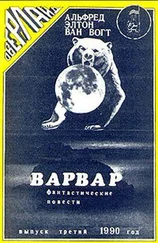One might criticize the Frenchman for being modern, not the Japanese. The Japanese has been modern for ten centuries. Nowhere in Japan do you find the slightest trace of that stupid pretentiousness of what is called Louis XIV, XV, Empire, etc.
To find something beautiful in France, to see a chair that will be fairly satisfactory (as far as a chair may be satisfactory), or a painting, a picture that is honest and plain, one must go back to the fifteenth and sixteenth centuries. When you look at a picture by Clouet (and in fact by Memling, Ghirlandajo, etc.), there is something right, assured, attentive and peaceful in it. Next comes the pompous century, then the century of the boudoir pimp, then the ‘stupid nineteenth century,’ ‘the century of heart trouble.’ Since the sixteenth century, the European has been losing himself, and lose himself he must, obviously, so that he may find himself.
In Japan, nothing of the sort; everything was always precise, never over-ornamented (in Japan the houses are not even painted, nor are the rooms, no wallpaper — this kind of pretentiousness is unknown).
The same material for everybody, rich or poor, and one that is never ugly: wood.
No doubt modern geometry is a bit cold. That of Japan was always so. But they have always liked it… Besides, Japan as an imitator seldom goes wrong in the matter of taste. It has not imitated the style of 1900. This idea never occurred to any Japanese. But the ultra-modern style is made for him, or rather, was his own with different materials. In the villages, if a new café is built, it will be completely ultra-modern.
There are something like four thousand ultra-modern cafés in Tokyo, where they serve you with drink and the company of a ‘barmaid.’ There’s no way of being by oneself. No use trying.

The European, after many an effort, has succeeded in belittling himself before God.
The Japanese not only belittles himself before God, or before men, but even before the smallest of waves, before the crumpled leaf of the reed, before distant bamboos that he can hardly see. Modesty, no doubt, reaps its reward. For to no other people do the leaves and the flowers appear with so much beauty and fraternity.
KOREA
It must be admitted that European civilization has every fault. But it has a magnetism that sweeps everything else away. There is in the world a general surge toward a joy without depth, toward excitement. The old Japanese music resembles the moaning of the wind; already the new is quite catchy; the old Chinese music is a perfect marvel, sweet and slow; the new sounds like any other; the old Korean music is tragic and terrible, and yet it used to be sung by prostitutes, but now it is ‘come along, let’s dance.’ (Their present music is a vile gallop and expresses in another way those singular transports that are most typical, among all the yellow races, of the Korean); man is no longer the world’s prey, but the world is his prey, man is at last emerging from his swamp.
So he did suffer with the blues, in the old days, and repression was unbearable to him! Even for an Asiatic.
JAPAN
This happened in the railway station in Okayama (in the stations, on the platforms of incoming trains, there are always quantities of gentlemen, ready to give their combined greetings to important personages on the train).
There are at first five or six hurried salutations on both sides, then it calms down and one can begin to get in a glance between each bow. Presently one may venture to speak, politely, though, of course, with a fresh bow at the first words to remove any doubt as to the good feelings of each one toward the other.
At Okayama, a lady was taking the train. She was there on the platform, in deep mourning, her style of dress exceedingly distinguished (in black, with a few white dots here and there that looked as if they might have fallen by chance, like raindrops).
She stood, during the eight minutes the train stopped, with her back to the compartment, while her waiting-women prepared the places for her, for her son and her brother (though the latter may have been her major-domo) and installed some baskets of flowers, covered with white silk, with one black dot beside the bow.
Thirteen persons in a semi-circle on the platform surrounded her; motionless, no particular sign of any sentiment other than deference. Two or three, however, appeared to be ‘touched.’…
She meanwhile, very white, blinked her eyelids.
Her eyes were slightly reddened; twice she dabbed them lightly with a little handkerchief hitherto concealed.
She neither looked at anyone in particular nor away in the distance. She was not exactly sad, but was plainly conscious of an important ceremony, and that the actual circumstances in which she found herself were, or should have been, rather ‘chic.’
And finally she bent low repeatedly, smiled a little, the train whistle blew a first time, she said three words to her sister(?) when the latter approached, smiled at her distinctly, bowed again to the semi-circle; the semi-circle bowed, bending at right angles; she got on the train, it whistled again and was off.
At that moment one of the group remembered something he wanted to let the major-domo know and ran alongside the train, bowing low as he ran, and bowed and bowed so much that a post in the station, which owing to his bent position he had not been able to see in time, put an end to his race; it must have hurt him considerably.

Now that one has spoken of the mentality of certain peoples, one really wonders if it was worth while, if one’s time would not have been put to a better use otherwise.
Take as an example a nation supposed to be great, England.
What is the Englishman? Not such an extraordinary creature. But there are fifty-five millions of them. This is the important fact. Suppose you had thirty Englishmen in all, throughout the whole world. Thirty chosen at random. Who would notice them? It is the same way with all the nations. For they are made up of ‘the average.’
A nation containing five hundred thousand Edgar Poes would obviously be a little more impressive.
Who will weigh the imbeciles in the scales when a civilization is set up?

The yellow soul is the only one that drags no mud along with it. It is never muddy. We do not know what it does with the mud. There is none. I was given, in Singapore, some obscene Chinese postcards. The Chinese has written some obscene things, and among others some plays. Well, what of that? Fifty per cent of the canvases in the Luxembourg seem dirty to me, and yet these obscene postcards seem to me amazingly delicate and quite incapable of causing inner damage. They are not at all exciting. It is not without reason, too, that the Japanese is at home with flowers, worships them and loves them fraternally as others love dogs, and that the Chinese likes to be among the leaves of the willow and of the bamboo.
When I went from Bengal to Darjeeling there was a halt at the Nepalese frontier, and a young Nepalese girl came and smiled at me. I believe she wanted to know whether I would buy some chocolate that she offered to fetch for me from a shop. But she knew no other English word than the one for ‘chocolate.’ (In a Nepalese there is some Hindu and some Mongol. She was entirely Mongol.) That smile, not in the least awkward, so bright, made such an impression on me and I looked at her with such delight that she herself was moved by it. Finally she broke away as though caught up by the wind, ran to get the chocolates, and put them in my hand. But the car that I was sharing with other travelers was about to leave, there was no hotel, she did not speak English, no one spoke English.
Читать дальше













